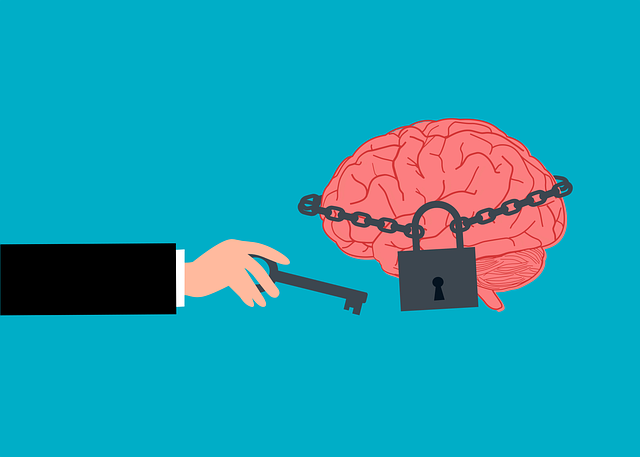In today's fast-paced world, mental health advocacy is vital, especially regarding therapy for children. Early intervention through therapy can significantly reduce future mental health issues globally. However, barriers like stigma and a lack of trained therapists-clinicians persist. Advocacy initiatives empower both individuals and professionals by promoting Mind Over Matter principles for therapists' well-being, Risk Management Planning, and open conversations to make therapy for children accessible, affordable, and widely accepted as an integral part of overall well-being. These efforts aim to destigmatize childhood mental illness, ensuring better support for both therapists and the next generation's long-term health.
Mental health advocacy initiatives are crucial in addressing the growing need for awareness, support, and accessible services. This article explores various aspects of mental well-being, focusing on three key areas: understanding the current landscape, specifically targeting children’s therapy needs, and supporting therapists themselves. We delve into the unique challenges faced by young individuals, effective therapy approaches tailored to their age group, and the impact of collaborative efforts between communities, schools, and healthcare providers. Additionally, we discuss self-care practices for overworked therapists and policy changes that can enhance access to mental health services, emphasizing the importance of comprehensive advocacy in building resilient minds and supportive ecosystems.
- The Need for Mental Health Advocacy
- – Understanding the current state of mental health awareness
- – Statistics and the impact on children and therapists
- Children's Mental Health Therapy: A Focus Area
The Need for Mental Health Advocacy

In today’s fast-paced world, mental health advocacy is more crucial than ever. The need for open dialogue and increased access to quality therapy for children cannot be overstated. According to recent studies, early intervention through therapy can significantly mitigate mental health issues later in life, making it a vital investment for communities worldwide. However, many barriers still exist, from the stigma surrounding mental health to the lack of trained therapists-clinicians available to provide specialized care.
Advocacy initiatives focus on empowering both individuals and professionals. For therapists and clinicians, integrating Mind Over Matter principles into practice not only enhances their own well-being but also improves their ability to support clients. Additionally, Risk Management Planning is essential for mental health professionals, ensuring they have the tools to navigate complex situations safely and effectively. By fostering a culture that prioritizes positive thinking and open conversations, we can collectively work towards a future where therapy for children is accessible, affordable, and widely accepted as an integral part of overall well-being.
– Understanding the current state of mental health awareness

In today’s world, mental health advocacy has become increasingly vital as we navigate a complex landscape where stress, anxiety, and other mental health issues are prevalent across all demographics, with a significant impact on children and young adults. Despite growing awareness, there is still a substantial gap in understanding and access to appropriate therapy for both children and therapists-clinicians. Many individuals struggle silently, facing barriers such as stigma, limited resources, and inadequate training in schools and communities. This has led to a critical need for initiatives that promote mental health literacy and ensure everyone has access to effective support, including therapy for children tailored to their unique needs.
The current state of mental health awareness demands innovative approaches, with a focus on early intervention and prevention strategies. Incorporating practices like mindfulness meditation into daily routines can offer anxiety relief and improve overall well-being. Additionally, professionals in the field must prioritize self-care and regular risk assessment to maintain resilience and provide the best care possible. By addressing these aspects, mental health advocacy initiatives can foster a more supportive environment, ultimately improving outcomes for those seeking therapy for children or adult clinicians looking to enhance their practice.
– Statistics and the impact on children and therapists

The impact of mental health issues on children is profound, with increasing statistics highlighting the need for effective therapy for children. According to recent studies, one in five children aged 3-18 experience a mental disorder, yet only a fraction receive appropriate support. This disparity has severe consequences, as untreated conditions can lead to long-term challenges in academic performance, social interactions, and overall well-being. As the demand for therapy for children grows, so does the need for qualified therapists—a challenge exacerbated by a shortage of mental health professionals specializing in pediatric care.
Therapists-clinicians play a vital role in addressing these issues, but they too face unique challenges. High caseloads, complex cases, and limited resources can impact their ability to provide quality care. Effective risk management planning for mental health professionals is essential to ensure the safety of both practitioners and clients. Enhancing mental health awareness and implementing empathy-building strategies can create a more supportive environment, fostering better outcomes for both therapists and the children they serve.
Children's Mental Health Therapy: A Focus Area

Children’s mental health therapy is a critical focus area within advocacy initiatives, as early intervention can significantly impact long-term well-being. This specialized field caters to the unique needs of young individuals, addressing issues such as anxiety, depression, and trauma. Therapists and clinicians skilled in working with children employ creative communication strategies tailored to their age group, making emotional healing processes more accessible and engaging.
By incorporating evidence-based practices, these professionals facilitate stress management workshops designed specifically for children and their families. Such initiatives not only empower kids with coping mechanisms but also equip parents with the tools to support their child’s mental health journey. Through these efforts, advocates strive to destigmatize mental illness in childhood, ensuring a brighter and healthier future for the next generation.
Mental health advocacy is a vital initiative that addresses the pressing need for increased awareness and support. By highlighting the current state of mental health, particularly focusing on children’s therapy, we can bring much-needed attention to this critical issue. The statistics speak volumes about the impact on both children and therapists, emphasizing the necessity of accessible and effective treatments. Advocacy efforts must continue to champion causes that enhance therapy for children and clinicians alike, ensuring a healthier future for all.












